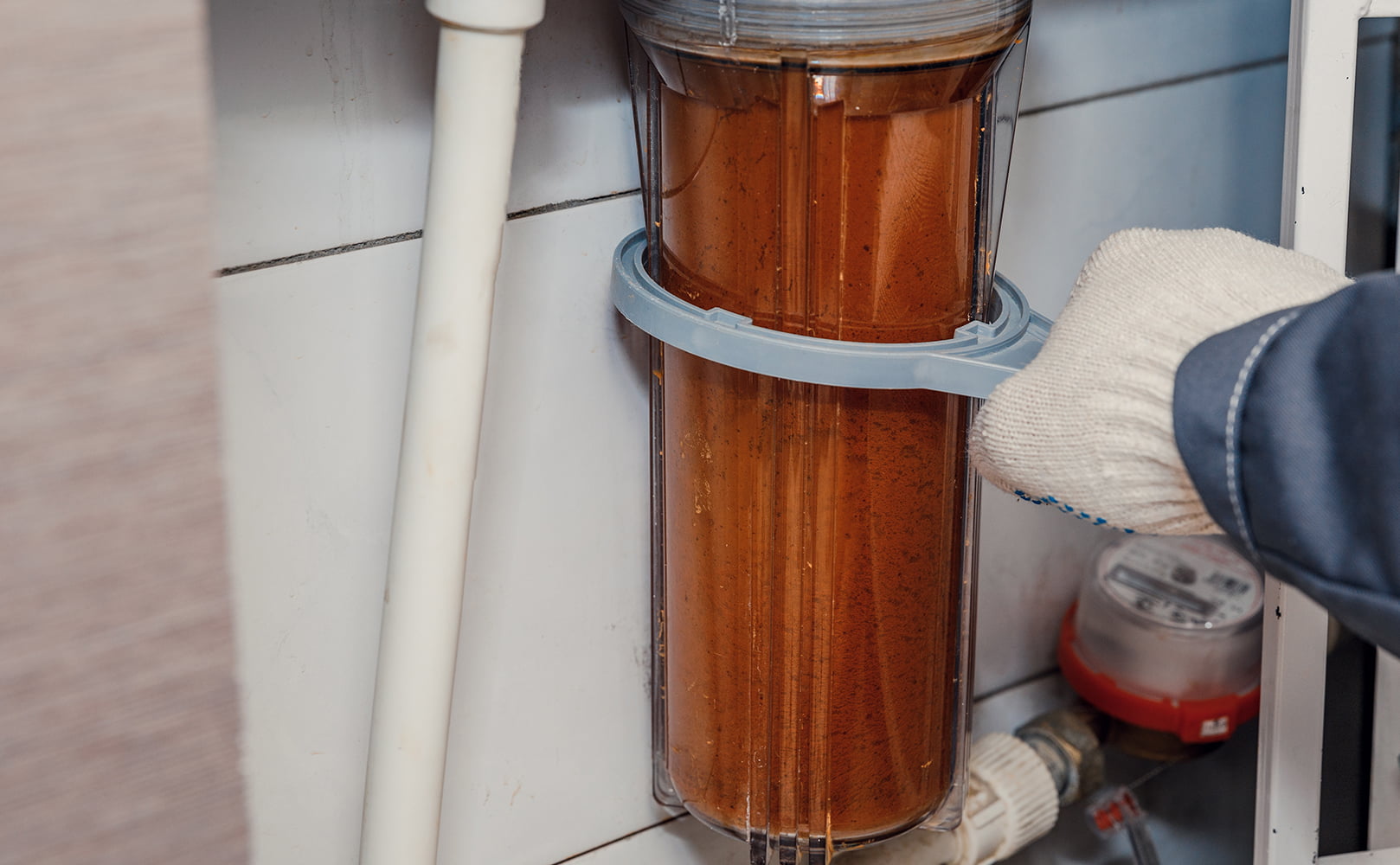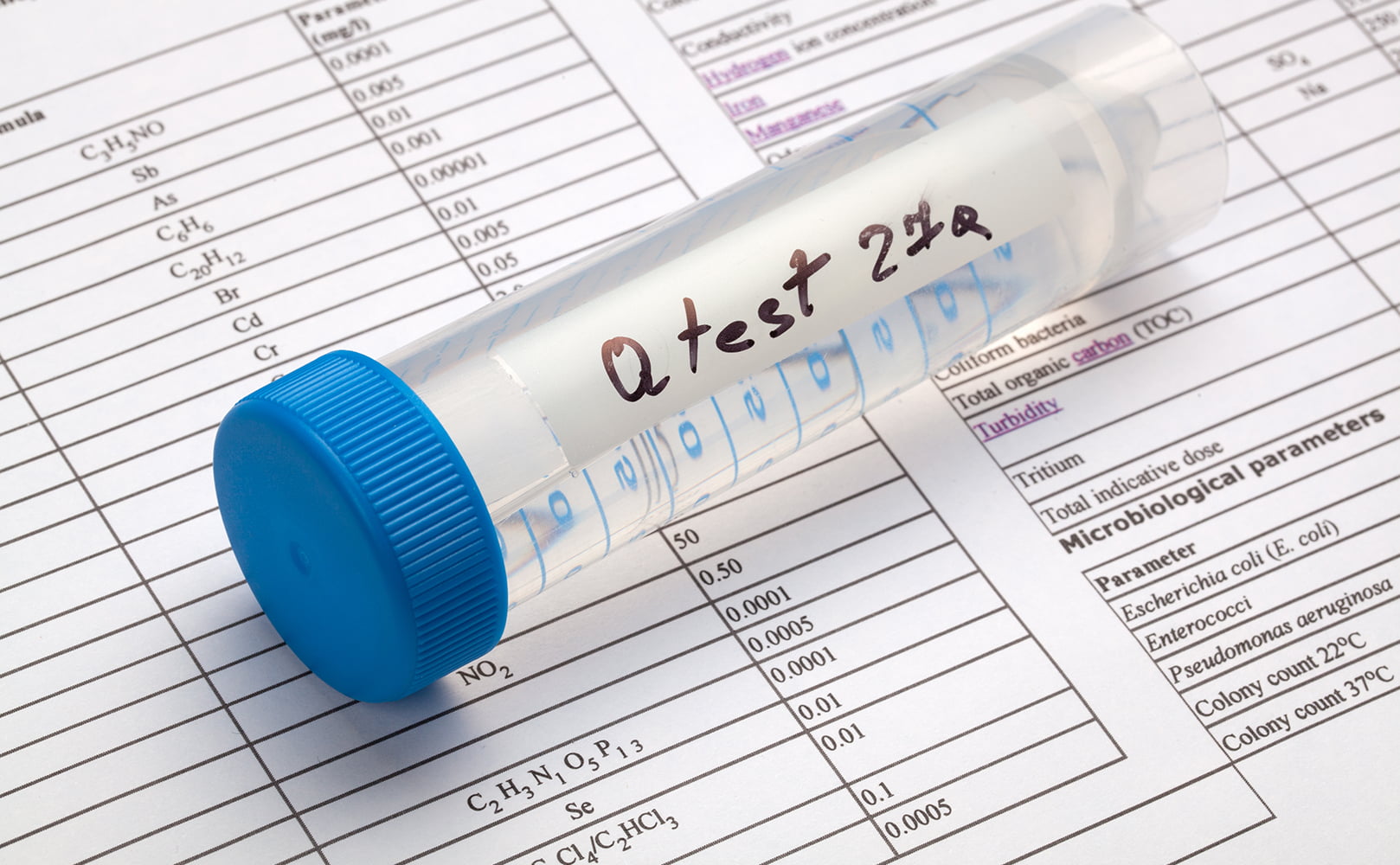How to Filter Well Water? Learn the Best Way Here!
Written by: Gene Fitzgerald // Last Updated: Jul 25, 2023
This page may contain affiliate links. If you buy a product or service through such a link we earn a commission at no extra cost to you. Learn more.
Owning a well is a convenient way to keep your home supplied with water without relying on public services.
However, the benefits are offset to some extent by the need for regular maintenance. If you leave a well unattended for too long, you will eventually encounter various problems with your water supply.
Filtration is a particularly important consideration, and you need to pay attention to how you’re treating your well water, especially if you live in an area with heavy contamination problems.
So, how to filter well water?
Key Takeaways
The best way to filter well water depends on your water conditions:
- Floating particles are best removed using a sediment filter.
- There are specialized filters for removing iron, manganese, and sulfur.
- Activated alumina filter media removes arsenic.
- Ion exchange resin targets various heavy metals.
- Reverse osmosis is for broad contaminant removal.
- Carbon filtration adsorbs chemicals.
- Finally, there is shock chlorination and UV water purification for dealing with microorganisms.
What Is Well Water?
Well water, as the name implies, is water extracted from a well. If you’re thinking of a classic well with a bucket on a rope though, that’s not the case nowadays. Modern wells incorporate pumps and screens and hook up directly to the water supply of the house.
Thus, wells serve as a replacement for a municipal water supply. From the perspective of the end consumer who turns on the faucet in the house, there is no real difference between the two.
What Is the Best Way to Filter Well Water?
Filtering well water works best with a whole house water filter. These systems are installed in your plumbing at the point where water enters the house.
They provide constant filtration of all water entering your home’s plumbing without requiring any manual intervention on your part. That makes them much more convenient than point-of-use filtration systems.
How to Filter Biological Contaminants in Well Water
Biological contaminants are a common form of well water contamination. They are best dealt with by using very fine filters – think low micron ratings.
A micron rating of 1-10 can already remove most bacteria and cysts. Ultrafiltration (0.1 micron or below) can also eliminate viruses. The same goes for reverse osmosis water purification.
Sediment
You will often encounter sediments in your water if you’re extracting it from a well. This is a natural byproduct of the fact that water is obtained directly from an underground supply. If this is the case in your situation, you should look for specialized sediment filters.
Iron, Manganese, Sulfur
Specific filters are also available for iron, manganese, and sulfur. They are commonly referred to as iron filters, even though they filter all three types of contaminants.
Make sure to test your water supply for the presence of iron and related contaminants before investing in a specialized filter for them.
Other Heavy Metals
Several types of filters can effectively remove heavy metals.
- Activated alumina is great at dealing with arsenic.
- Ion exchange resin filters can remove a wide range of heavy metals and are great as an all-purpose solution.
- You should also look into a reverse osmosis system when dealing with this type of contaminant.
Organic Chemicals (Carbon Filtration)
Organic chemicals – like pesticides and herbicides leaking into the water – are typically best attacked with carbon filtration. This is a relatively inexpensive and reliable filtration method which produces great results.
Other Methods of Well Water Treatment
An adequate set of well water filters can deal with many types of contaminants with ease.
However, you might want to look into additional solutions if you’re dealing with particularly bad contamination, or if you want to maximize the effectiveness of your existing filters.
Shock Chlorination for Well Water Disinfection
Shock chlorination refers to adding chlorine to your well and allowing it to work for a while before flushing it out of your water system.
This is best done at the source. It’s important to leave the chlorine undisturbed for a while so it can properly disinfect your water supply.
After that, you must allow your water to run for some time to ensure that the chlorine gets properly flushed out.
UV Water Purification
UV water purification is a contactless method for disinfecting water. It’s based on the principle that exposing bacteria and other microorganisms to UV light scrambles their DNA and effectively kills them.
UV water filters utilize a UV light bulb in the middle of a long sleeve through which water passes. This allows the filter to thoroughly purify the water before it enters the rest of your home.
An important note about UV purification is that its performance is negatively impacted by sediments and other similar contaminants. They can block the UV light, creating safe spots for bacteria etc. to pass through unharmed. Therefore, UV purification should ideally happen after water has already passed through other filter stages.
Water Softening
Water softening specifically removes minerals and other components that make water hard. This is not strictly necessary. Some people actually prefer hard water due to its high mineral content.
However, hard water can degrade the lifespan of appliances like washing machines and dishwashers, and can leave an unpleasant residue on your skin, hair, and clothes when washing them.
What to Consider When Buying a Well Water Filter
In order to ensure that you’re making the best investment with regard to your current situation, you should consider several factors when shopping around for a well water filter.
Well Water Testing
Always get your well water professionally tested before deciding on specific filtration types. This can be done by taking a sample and submitting it to a laboratory for evaluation. The lab will then provide you with a detailed list of contaminants and their concentrations.
While the market offers DIY tests that you can perform on your own, it’s not always advisable to base your purchasing decision on those. Their reliability is not as great as that of proper laboratory testing.
Flow Rate
Water filters are rated for specific flow rates. If you live in a large household with many people, you probably require a higher flow rate than the average consumer. Using a well water filtration system with an insufficient flow rate will create a bottleneck in your water supply and might require more frequent maintenance.
Maintenance
Pay attention to factors like how often you need to replace filter cartridges and what other types of servicing you need to perform on the filter system you’re buying.
Some models can last for up to several years before needing filter (media) replacement, while others need to be maintained far more frequently. This will also depend on your water conditions and consumption habits.
Budget
And of course, know your budget and keep your purchase within reasonable bounds. This doesn’t just concern the short term but the future as well. Some well water filter systems come at a very low upfront price, but cost more down the road when you have to replace their cartridges more often (and the replacements themselves could be much more expensive compared to competing models!).
Pros and Cons of Using Well Water at Home
Pros
- No dependency on public water supply
- You don’t have to pay for water
- Often richer in minerals than city water
Cons
- You’re responsible for the maintenance of your well
- Most setups require electricity
Is Well Water Safe to Drink?
When treated properly, well water is generally very safe to drink. It might even provide some additional benefits over regular tap water, such as higher mineral content.
However, you must be certain that you’re properly filtering your well water before consuming it. Otherwise, you might expose yourself to a higher health risk compared to city water.
If you have any questions about how to filter well water please don’t hesitate to leave a comment below!
Information provided on BOS is for educational purposes only. The products and services we review may not be right for your individual circumstances.
We adhere to strict editorial guidelines. Rest assured, the opinions expressed have not been provided, reviewed, or otherwise endorsed by our partners – they are unbiased, independent, and the author’s alone. Our licensed experts fact-check all content for accuracy. It is accurate as of the date posted and to the best of our knowledge.



